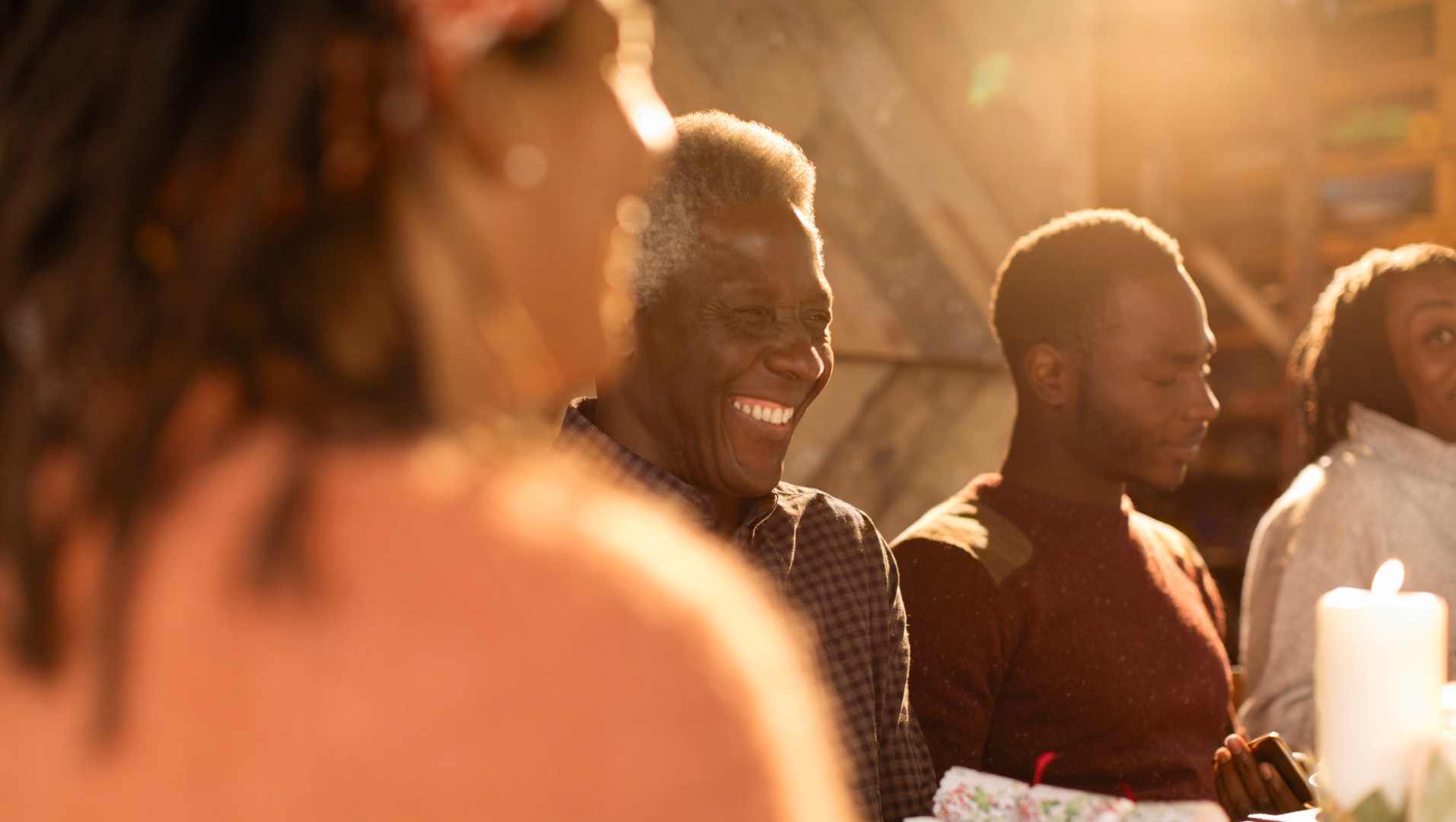When my wife, Ellen, and I were dating, I found her sarcasm jarring. I would respond to her sarcastic remarks by saying, "Did you know that sarcasm comes from the Greek word sarkazo? It's a verb form of the noun sarx, meaning flesh. Sarkazo was used to describe wild dogs ripping out flesh. That's what it's like when you are sarcastic—you're tearing out my flesh." She didn't quite see it that way.
It wasn't until I got to know her family better that I came to understand that sarcasm was one of her family's love languages. They joked around with those they cared for; it was their way of saying, "You're part of the family." I gradually realized that Ellen's sarcastic remarks were her way of telling me that she liked me.
Holidays are usually times of gathering with extended family and relatives that we don't see very often. This can be a cross-cultural experience. The kids play outside while the aunts and uncles hash out family issues in the kitchen. We wonder, How can these people possibly be related?
We all have quirky family traditions and wacky uncles. But we are still family. Christianity Today senior writer Tim Stafford notes in Never Mind the Joneses that every family has its own way of doing things. Most marriages face conflict when one family culture bumps up against another. Successful marriages incorporate elements from the cultures of both families of origin and forge a distinctive third culture.
Socially, many of us rarely mingle with people beyond our own "family." Bill Bishop, in The Big Sort, observes that Americans tend to organize themselves into like-minded communities, both politically and religiously. We live in fragmented tribes in which we only interact with people we already agree with on most issues. Bishop notes that when communities are homogenous, opinion becomes far more absolute and dogmatic. Conservatives become extremely conservative, and liberals become radically liberal.
Some geographic areas are so overwhelmingly Republican or Democrat that it becomes inconceivable to residents that people could hold differing opinions. As playwright Arthur Miller asked during the 2004 election cycle, "How can the polls be neck and neck when I don't know one Bush supporter?" We live in echo chambers where our perspectives are not tempered by alternate views.
The church is also at risk of living in theologically homogenous echo chambers. We sort ourselves based on doctrinal tradition, church polity, or worship style. We fight over issues like young-earth creationism or intelligent design and whether moms should stay at home or not. We question the salvation of Christians in different tribes. Our reading lists only have books from our theological perspective, or only male authors, or only North Americans.
Educational theory tells us that at earlier developmental stages, we think in black and white; one perspective is right and others are wrong. But as we age and grow, we learn that it's not that simple. Different perspectives each have their own value and contribution. We forget that the umbrella of Nicene Christianity has permitted the development of a variety of theological traditions, each with its own biblical rationale and justification.
Rubbing shoulders with other Christian family members helps us rediscover our own denominational and ecclesial distinctives. And we can be alerted to our own blind spots. Evangelicals benefit when Pentecostals remind them of the importance of the Holy Spirit. Contemplatives and activists can temper each other's emphases. And Christians in North America can learn much from Christians living out their faith in different political and economic circumstances around the world.
So this holiday season, put something on your Amazon wish list that you ordinarily wouldn't pick up. Go through a four-views book, and give each perspective a charitable reading. Don't just subscribe to CT; read The Christian Century as well. Or Sojourners, World, or Relevant.
Better yet, begin a face-to-face friendship with someone who thinks differently from you. Have lunch with a friend from a different church or theological tradition or who voted for the other presidential candidate. Instead of only advocating for your point of view, focus on understanding theirs.
I've been sharpened by friends who are more conservative than me and by those more liberal than me. They stretch me and challenge me in different ways, and I am better for it.
Most of the time we live out our immediate family's traits and traditions, and that's fine. But sometimes it is good for us to hang out with the in-laws or extended relatives and swap stories. And we shouldn't be too surprised if we learn something from other members of the body of Christ. After all, we're family.
Al Hsu is an associate editor at InterVarsityPress. He is the author of several books, most recently The Suburban Christian and blogs at TheSuburbanChristian.blogspot.com.
Copyright © 2008 Christianity Today. Click for reprint information.
Related Elsewhere:
Surprised by Disability | Why the parts of the body that seem to be weaker are indispensible. (September 30, 2008)
Olympic Snapshot | Imagine swords turned into plowshares, and soldiers into soccer players. (August, 8, 2008)
Grace and Peace | How a simple salutation points us toward a new society. (June 18, 2008)
A Multifaceted Gospel | Why evangelicals shouldn't be threatened by new tellings of the Good News. (April 10, 2008)
The Vision Thing | Clarity came just as things got blurry. (February 21, 2008)










